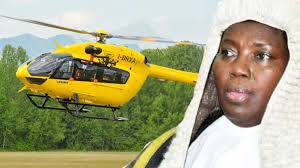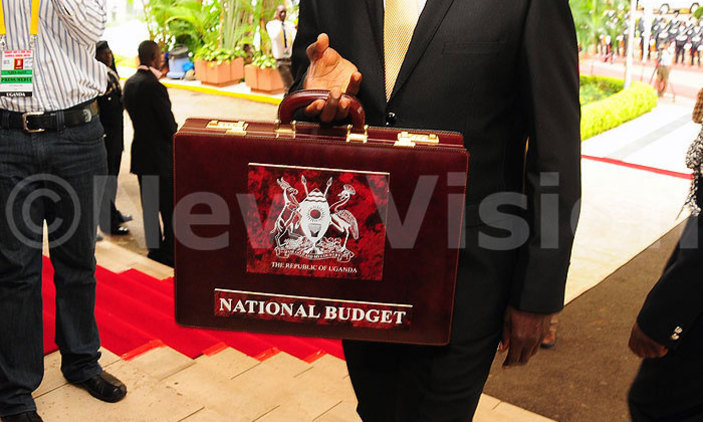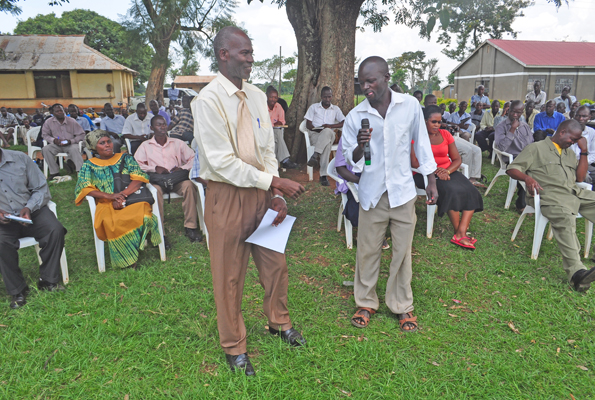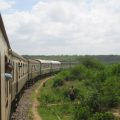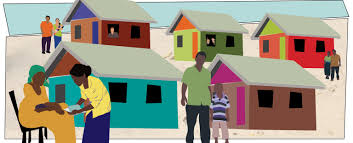
Uganda Debt Network (UDN) through her Community Based Monitoring and Evaluation System (CBMES) approach, different strategies have been employed to build communities’ capacity to effectively carry out monitoring and benefit from Government programmes. Oversight Committees/User Committees and Community Based Monitors in different districts have been trained with an aim of enhancing local accountability and local activism for improved service delivery.
As a result, stories of change capturing impact have given UDN the morale to continue the commitment in training oversight Committee members and Community Based Monitors for a better Uganda.
1. Empowering accountability and oversight committees.
Lubira parish, Buyanga sub-county in Iganga district reported cases where water users committees for three community boreholes regularly collected money from users as contributions to maintain and sustain functionality of the boreholes without ever accounting to the beneficiaries’. This is because the service users did not have the knowledge on how to hold the Water User committee accountable.
For example the treasurers and secretaries were in the habit of sharing money collected for their personal gains as repairs of the boreholes would be referred to area politicians including the Member of Parliament for Bugweri constituency and Bumozi primary school which shared the water source with the community.
Following the joint training of accountability committees with Community Based Monitors (CBMs) who were provided information of their roles and responsibilities, the group led by Damali Nalugoda during their monitoring found out that all the boreholes were not functioning well.
On the 10th, November 2015 they organized a successful stakeholders meeting for Bumozi village borehole where she explained to community members, the guidelines for the roles of Scholl Management Committees (SMC) and Water User Committees (WUCs) and service users and another on 15th, March 2016 at Buswaga village on the issue money amounting to UGX 80,000 which had been embezzled by the Treasurer and Secretary of the WUC.
Consequently the community of Bumozi resolved to disband the old committee and elected a new committee to manage the borehole and mechanisms for future repairs to be rotational by village. The 80,000 for Buswaga village that had been embezzled was recovered and borehole repaired in April 2016.
This intervention empowered community members to be vigilant on accountability and increased functionality and management of water sources has improved. It was noted that: “Calling a meeting is possible but to tell the community what is expected from them is hard because we did not know about the guidelines”- Nalugodha Mubaraka- member of the Water User Committee Bumozi village in Buyanga sub county Iganga district.
2. Functionality of the Parish Development Committees (PDCs).
In Kumi district, the PDCs were non-functional in a number of sub-counties. After the training of oversight sight Committees and Community Based Monitors (CBMs) in February 2016, the PDCs of Mukongoro and Atutur sub counties immediately held a meeting the district planner and CAO. The PDCs and CBMs demanded for more responsibility in the planning and budgeting processes in the district and other development activities.
As a result, PDCs from the two sub counties have taken on a more active role in quarterly Sub County and district budget, planning and review meetings. The facilitation of PDCs was included the district budget for FY 2016/17 and specifically Mukongoro sub county Local Government budget provided for 1,000,000/= for continuous mentoring of PDCs and data collection in the FY 2016/17 and 46,841,500/= for grading and maintenance of community access roads in Mukongoro sub county.
3. Installing of Power in Aparisa Primary School.
In Amuria District, after the training of Oversight committee members in February 2016, the Chairperson of Aparisa Primary School in Asamuk Sub County on realizing that it’s their responsibility to improve and develop school facilities using various means called for a PTA /SMC meeting and among others things agreed to install power in the two classroom block constructed by the district in the FY2015/16 at the cost of UGX 109m. As a result of the SMC meetings, parents were mobilized to contribute UGX 5000 and a total of UGX 970,000 was raised and used to install power at Aparisa primary school in April 2016.
4. Hospital Beds received in Kolir HC III in Bukedea District
Since August 2015, Community Based Monitors (CBMs) in collaboration with members of Health Unit Management Committee (HUMC) reported inadequate beds at Kolir HC III in Bukedea district to the District Health Officer (DHO) who promised to liaise with Ministry of Health to acquire more bed through the district dialogue. In February 2016, Kolir HCIII received four beds i.e. 1 Labour bed, 2 for the female ward and 1 for the male ward, all worth over UGX 10 million. The community based monitors followed up these developments to establish the facts at the district and the Health Centre.
5. Health Personnel wearing Uniforms while on duty.
In Kamuli district, Health Personnel used not to wear uniforms while at duty yet this is a requirement by Ministry of Health. This caused some fraudsters to extort money from patient since it was difficult to identify a health worker especially in the General ward. After the training of Oversight committee members in November 2015, Chairperson of Namwendwa HC IV called for a HUMC meeting in December 2015 after the last meeting held in 2013. The meeting was attended by the In charge of the Health Centre and HUMC members. Among the resolutions made, it was agreed that all workers should be clad in their uniforms lest they don’t report to work and this resolution was effected immediately.
UDN is proud to be apart of life changing experiences in different districts and will continue the struggle to achieve her mission of a prosperous Uganda with sustainable, equitable development and a high quality of life of people.
Together we can make a difference.





